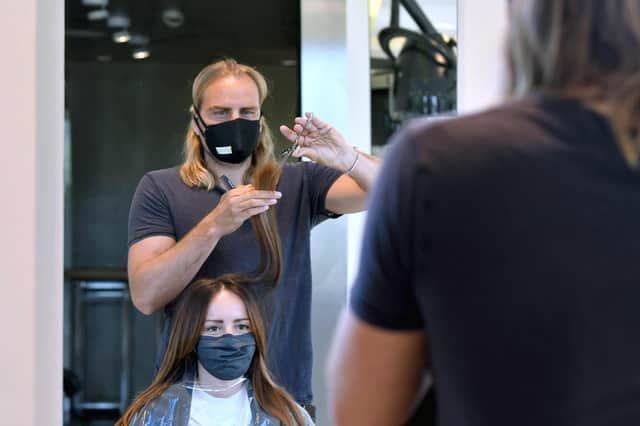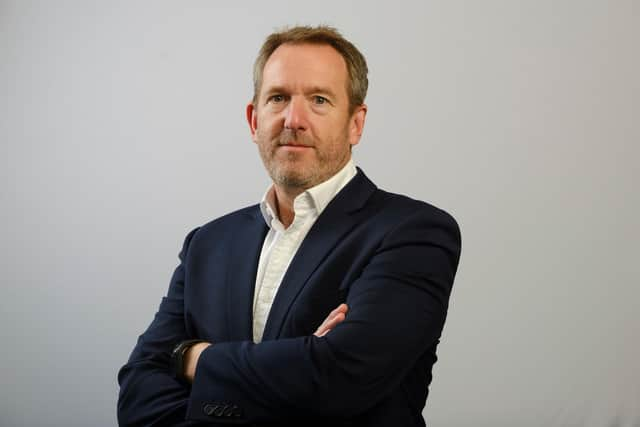Time to start thinking about the ‘never normal’ - comment


Rather than having been “nudged” into a new way of life, through either fear, the ubiquitous influence of social media or the encouragement of government, we have become frequent hand-washers, social distancers, community volunteers and home workers in the space of a few weeks.
That speedy acceptance of new rules should give us pause for thought because the chances are, far from returning to “normal,” we are actively re-writing everyday habits that will last long into the future. Getting to grips with what’s happening around us and planning how to respond to the forever-altered priorities of our customers and employees is something we will all need to address as the recovery phase edges closer.
Advertisement
Hide AdAdvertisement
Hide AdRather than being the “new normal,” a now-ubiquitous phrase, an Accenture Interactive report, ‘Covid-19: 5 new human truths that experiences need to address’, calls this new status the “never normal” and provides plenty of food for thought.


It gives five clear examples of how human experience of the coronavirus as we’re living it now is likely to shape behaviours long after the crisis has passed.
Firstly, one explicit message of Covid-19 is that other people and places can carry an invisible threat. Deciding on what to do – especially in relation to big decisions, from what to buy to where to live or work – is becoming a more anxious process. As a consequence, confidence will be eroded and caution increased.
Trust in people and brands will be far more important than ever, with those companies who acted well during the crisis faring better than those who lose or fail to win over the public trust.
Virtual activity
Second, the enforced move during the worst of the pandemic to video calls and remote working will fuel a further shift to virtual activity for nearly every kind of experience. Adoption of digital by those yet to do so, or the slow-footed, will have to be accelerated if businesses are to stay connected to their customers.
An uplift in use of, and investment in, virtual and augmented reality has already been tipped as a likely after-effect and many are testing and exploring the creative possibilities of communicating virtually across education, service delivery, transactions and entertainment.
Even a craving for “real” is now likely to be more nuanced than it was before as experiences such as museum visits and gym classes have established a greater virtual foothold. In this future, we can expect broadband and 5G to be life-essential for most people.
Third, post-coronavirus, health will dominate as people reassess every product and service according to the extent to which it affects their wellbeing. If once the mantra was every firm is a digital business, perhaps going forward it will be that each one is a health business, and the early adaptors (as with technology) will be the ones to see the advantages.
Advertisement
Hide AdAdvertisement
Hide AdA new health ecosystem could emerge with opportunities for all to plug into. Fourth, self-isolation has meant a return en masse to home as the epicentre of life and experience. It will be interesting to see if a desire for “cocooning” will continue and what this means for firms catering for home comfort and how this new perspective sits with the pre-pandemic global outlook.
Finally, something for everyone to think about. Dependence on experts and strong government support for businesses and charities is lending real weight to central authority. That means there’s a potential for more influence by government over individuals’ and companies’ behaviour.
Equally, social pressure for greater responsibility could grow significantly and the extent to which we all direct our resources – people, processes and technology – toward solving problems over selling products will demonstrate what we truly stand for in the new, never normal.
Les Bayne is Joint MD for Accenture Scotland
A message from the Editor:
Thank you for reading this story on our website. While I have your attention, I also have an important request to make of you.With the coronavirus lockdown having a major impact on many of our advertisers - and consequently the revenue we receive - we are more reliant than ever on you taking out a digital subscription.Subscribe to scotsman.com and enjoy unlimited access to Scottish news and information online and on our app. With a digital subscription, you can read more than five articles, see fewer ads, enjoy faster load times, and get access to exclusive newsletters and content. Visit www.scotsman.com/subscriptions now to sign up.
Our journalism costs money and we rely on advertising, print and digital revenues to help to support them. By supporting us, we are able to support you in providing trusted, fact-checked content for this website.
Joy Yates
Editorial Director